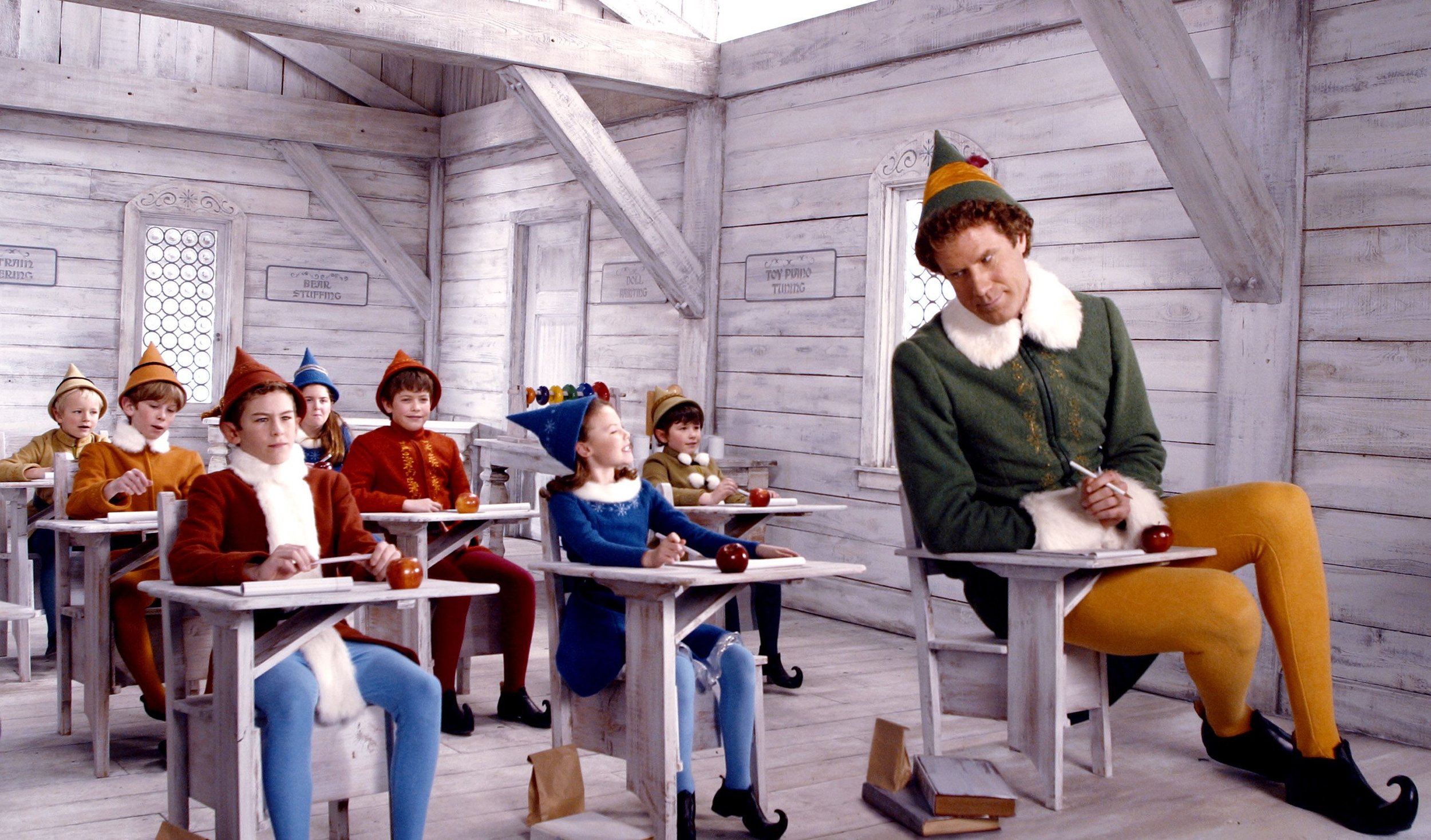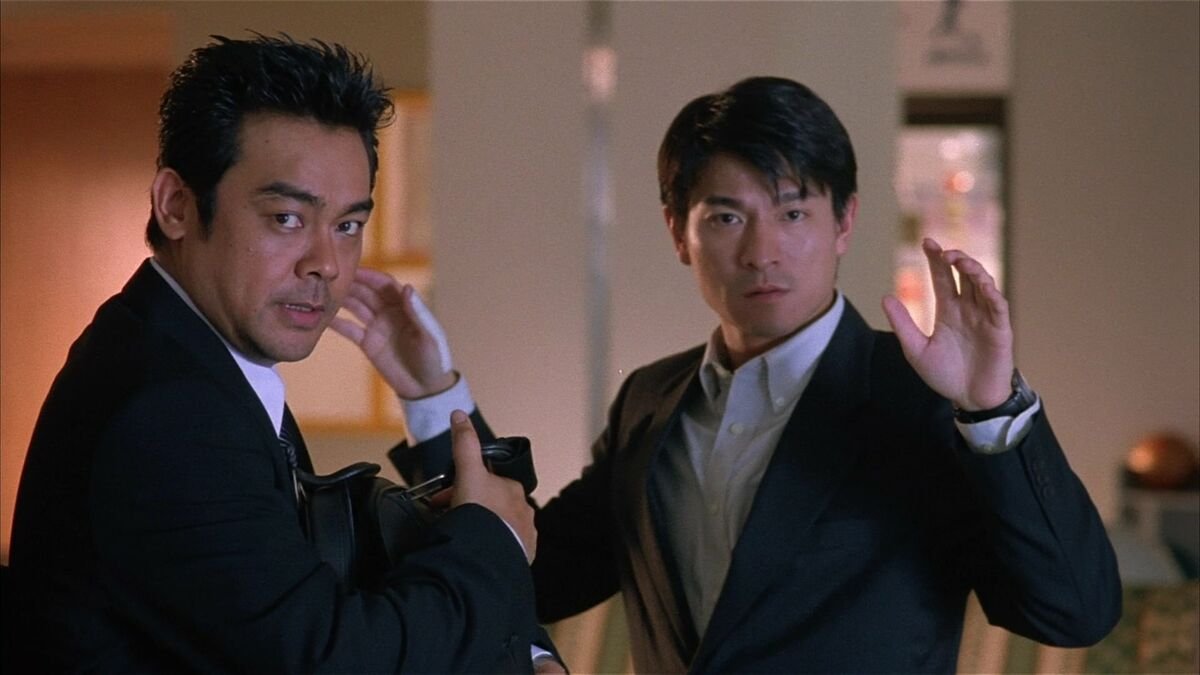Christmas: Elf (2003)
Is there a more iconic Christmas movie from the past 20 years than Jon Favreau’s Elf? I’d wager not. While the film was originally marketed and received as a Will Ferrell comedic lark and something of a feature-length Saturday Night Live sketch, the film was a hit in the 2003 Christmas movie season and has never looked back.
Today, there are Elf children’s books, Elf decorations, Elf animated TV specials and Broadway musicals. Not that the success of a Christmas movie ought to be measured by its commercial expansion. But the saturation of Elf into our modern Christmas pop culture does demonstrate the film’s lasting appeal. And the film deserves its reputation. It’s perhaps the only film over the past two decades that captures something of the effect of a Christmas classic like Home Alone or Miracle on 34th Street, or more particularly the TV specials of Rankin/Bass, which the film uses as visual inspiration.
In Elf, the 30-year-old Buddy, played by a wondrously committed Will Ferrell, is a human raised by elves at Santa’s Workshop at the North Pole. Buddy discovers he’s not an elf and embarks on a quest to New York City to meet his human father, Walter Hobbs, played by a deadpan James Caan, a Scrooge-like children’s book publisher who cares for nothing but money. In New York City, Buddy keeps elfishly busy: he falls in love with a store clerk, Zooey Deschanel’s Jovie; helps mend the relationship between Walter and his younger son, Michael (Daniel Tay); and eventually saves Christmas after Santa crash lands his sleigh in Central Park.
The foundation of the film’s impact is Ferrell, who delivers his signature performance. One of Ferrell’s greatest gifts as a performer is a complete lack of self-consciousness in the midst of an idiotic joke, something he shares with similarly goofy comedians such as Jim Carrey and Mike Myers. But unlike those two, Ferrell never mugs for the camera or mocks the scenario he’s embodying. He’s earnest and committed, which makes him absolutely credible as the endlessly cheerful and naive Buddy, who seems delusional to everyone who isn’t in on the secret that Santa is real and that Buddy really was raised by elves. Just recall the genius of Buddy accosting a department store Santa Claus—“You sit on a throne of lies”—as evidence of Ferrell’s commitment to the role.
The film has fun with the fish-out-of-water hijinks that Buddy gets into in New York City, from run-ins with security guards at the Empire State Building to mistaking perfume as fruit spray to lathering every single dish of food offered him with heaps of maple syrup (including, most memorably, spaghetti). There are plenty of solid gags throughout the film, which punctuate the relentless cheerfulness and make it worth watching for someone simply looking for a good comedy.
But Buddy also embodies the core theme of the film, which is that you have to embrace the Christmas spirit no matter how outdated and uncool it may seem. The film argues that much of the joy of Christmas is only possible through an earnest embrace of the season, one that operates without fear but with absolute commitment to the betterment of others. This makes Elf something of the platonic ideal of a secular Christmas movie, as Christmas cheer is the element that Buddy has to inspire in others in order to save Santa Claus in the film’s climax. During the film, Buddy reforms a miser, heals a family relationship, encourages good cheer across the city, and saves the actual Santa Claus. This approach blends together elements of everything from A Christmas Carol to Miracle on 34th Street to Home Alone. The film is calculated to check all the boxes for a Christmas movie.
While the climax is perhaps too easily resolved and somewhat weak compared to the rest of the film, my biggest complaint about Elf has always been its lack of style once the film leaves the North Pole. In the North Pole, Favreau and team ingeniously make Santa’s Workshop resemble the designs of Rudolph the Red-Nosed Reindeer and other Rankin/Bass specials. There are even stop-motion animals and a snowman living in the North Pole to complete the Rankin/Bass picture. But once Buddy ends up in New York, the film is relatively staid, stripped of any stylization or notable visual approach. I used to think this was indicative of the film’s lacklustre artistic approach, but I now believe it lends the film a timeless quality and helps create the visual contrast between the fantastical realm of Christmas and the mundane modern city.
As well, Elf doesn’t feel dated or stuck in the early 2000s. Rather, it plays as effectively today as it did at its release, something of an evergreen paean to the cheer of the season and the silly fun of the Santa legend. It’s possible that another Christmas movie appears in the next 20 years that outdoes Elf in terms of becoming a new Christmas classic, but it’s unlikely. It’s hard for a film to embody Christmas cheer and provide a good laugh each and every time it’s revisited like Elf does. Rather than rob it of its impact, repetition brings out its true qualities and makes it an eagerly anticipated part of the Christmas season.
8 out of 10
Elf (2003, USA)
Directed by Jon Favreau; written by David Berenbaum; starring Will Ferrell, James Caan, Zooey Deschanel, Mary Steenburgen, Daniel Tay, Ed Asner, Bob Newhart, Faizon Love, Peter Dinklage, Amy Sedaris, Michael Lerner.



George More O’Farrell’s The Holly and the Ivy is a perceptive Christmas drama that deserves a place in the Christmas rotation.